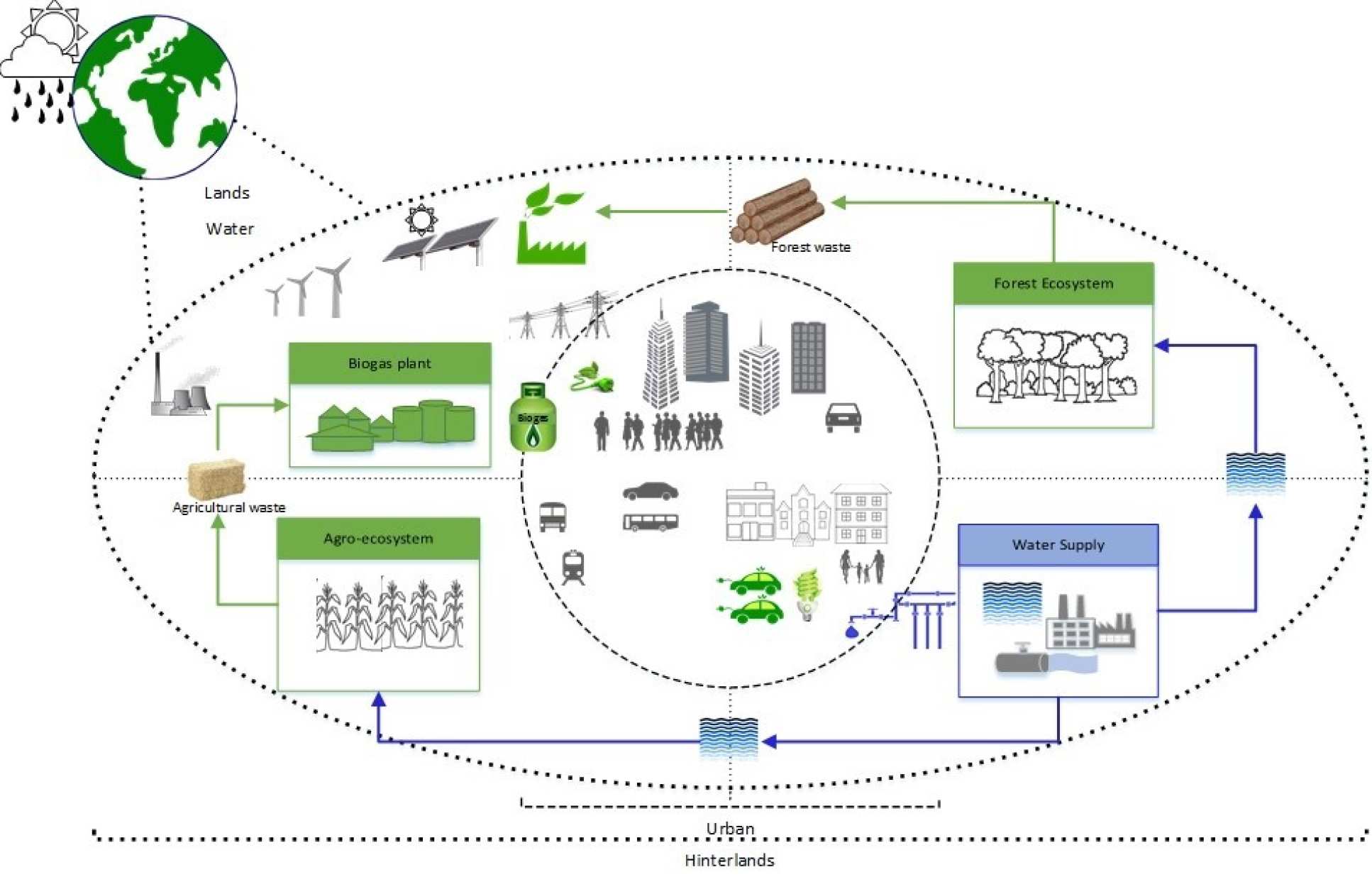The expanding population and rapid urbanisation are leading to a range of societal challenges e.g. increasing energy demands and climate change. It is estimated that the population living in urban environments by 2050 will rise to 66% globally. Urban areas account for two-thirds of global primary energy consumption and 71% of energy-related greenhouse gases. To tackle such societal challenges, the burgeoning shifts in urban energy systems towards smart grids paradigm including demand side management and distributed generation have been proposed as effective solutions, particularly for urban areas with high energy densities and diverse types of energy demands. In addition, a range of micro-grid and energy storage technologies are under development. However, the urban energy systems are complex, involving the supply-demand interconnection, the interaction of whole system level with various stakeholders (e.g. end-users, centralised suppliers) and regulation effects of policy instruments. In our research, whole systems modelling approach is adopted to explore the implications of smart operational strategies, micro-grid and energy storage technologies on the sustainable and resource-efficient design of urban energy systems, and investigate the effects of policy-options on the system-wide performances particularly the trade-offs between economic and environmental sustainability.

Contact us
Miao Guo, Principal Investigator and EPSRC Research Fellow,
Department of Chemical Engineering,
Imperial College London, South Kensington Campus
London
SW7 2AZ
Email: miao.guo@imperial.ac.uk
Telephone: +44 (0) 20 7594 3379